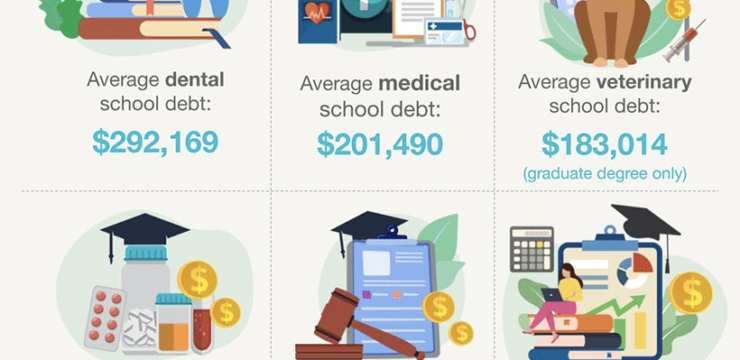What Happens to Student Loans If You Drop Out?
Dropping out of college is a big decision, and it can raise a lot of questions—especially about student loans. If you’re wondering what happens to your loans when you’re no longer in school, you’re not alone.
Here’s a simple breakdown of how student loans are typically handled if you leave school before graduating.
1. Your Grace Period Begins
When you drop out, your student loans don’t need to be repaid right away. Most federal student loans come with a grace period—usually six months—before repayment begins. This gives you some time to find work and get your finances in order.
Private loans may have different terms, so it’s important to check with your loan servicer to understand your repayment timeline.
2. Interest May Start to Accumulate
While you’re not in school, interest may start to build up on your loans. For subsidized federal loans, the government may cover the interest during the grace period. However, for unsubsidized loans and most private loans, interest begins to accrue immediately after you leave school.
This means your total loan balance could be slightly higher by the time repayment starts.
3. Repayment Will Be Required
Even if you didn’t complete your degree, you’re still responsible for repaying the money you borrowed. Your loan payments will begin once your grace period ends. The good news? There are various repayment options, especially for federal loans, that can help you manage your monthly payments based on your income.
4. You May Be Eligible for Deferment or Forbearance
If you’re facing financial hardship after dropping out, you may qualify for deferment or forbearance. These options temporarily pause your payments or reduce the amount due, but interest may still accrue depending on the type of loan.
It’s best to contact your loan servicer as soon as possible to discuss these options.
5. Returning to School Can Pause Payments
If you decide to go back to school at least half-time, your loans may go back into deferment, which pauses repayment. In some cases, this can reset your grace period—but not always—so be sure to double-check with your loan provider.
6. Your Credit Score Can Be Affected
Making your loan payments on time can help build a positive credit history. However, if you miss payments or default, it can negatively impact your credit score. That’s why staying in touch with your loan servicer is so important—they can help you avoid issues by offering different repayment strategies.
Final Thoughts
Leaving school doesn’t erase your loan responsibilities, but there are flexible repayment plans and support options available to help you manage them. Whether you’re thinking of returning to school, finding work, or exploring other paths, staying informed about your student loans is one of the smartest financial steps you can take.





